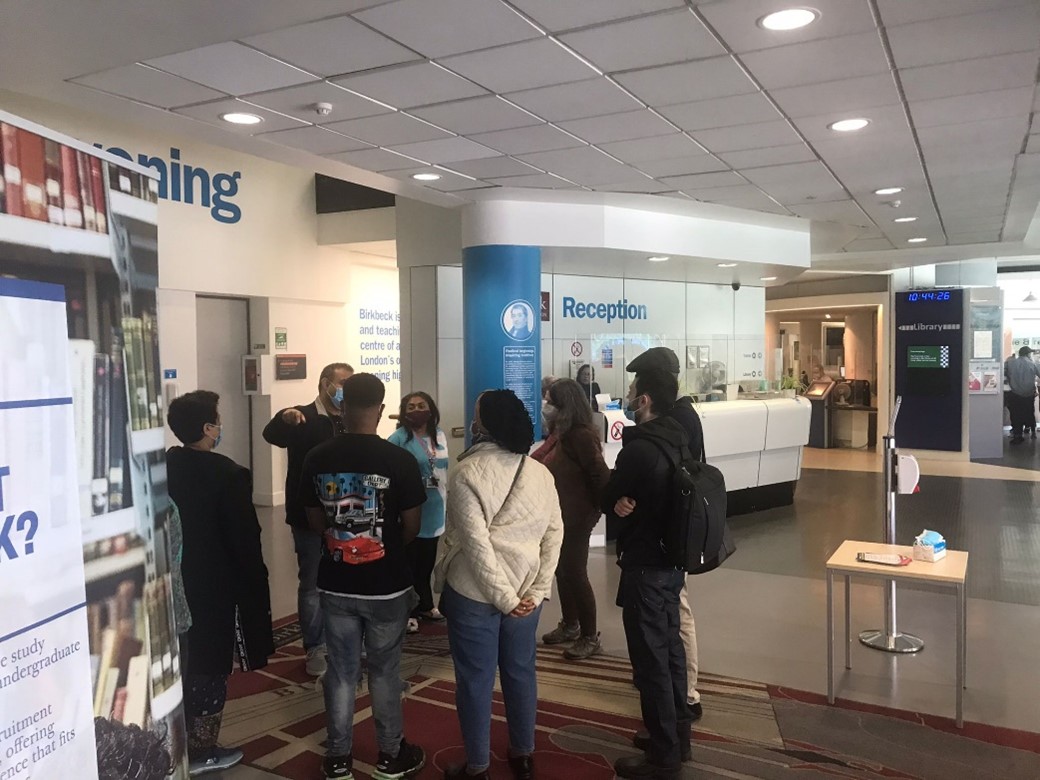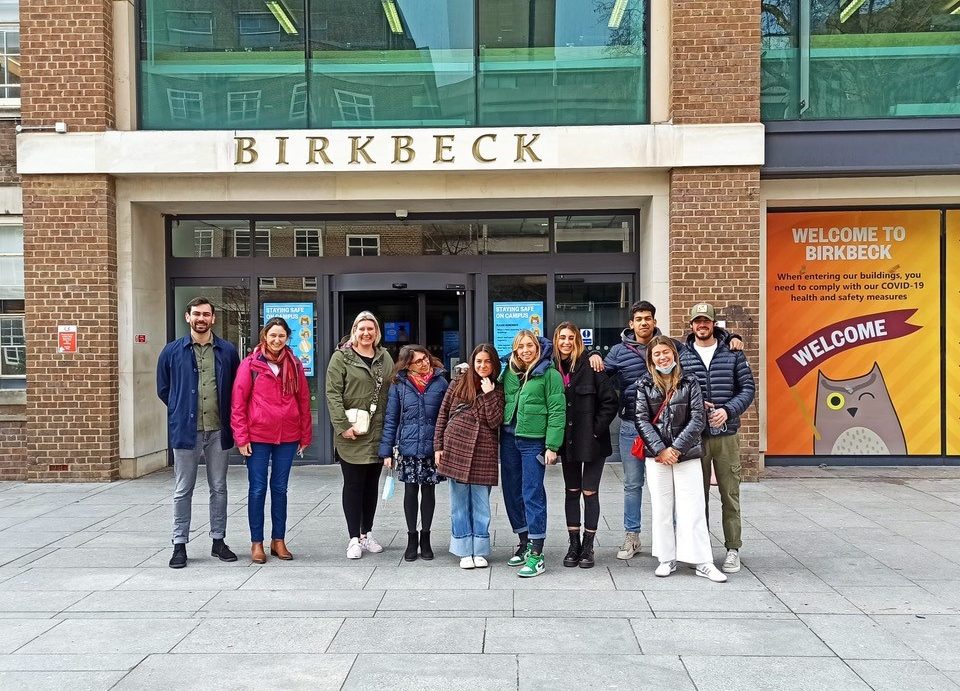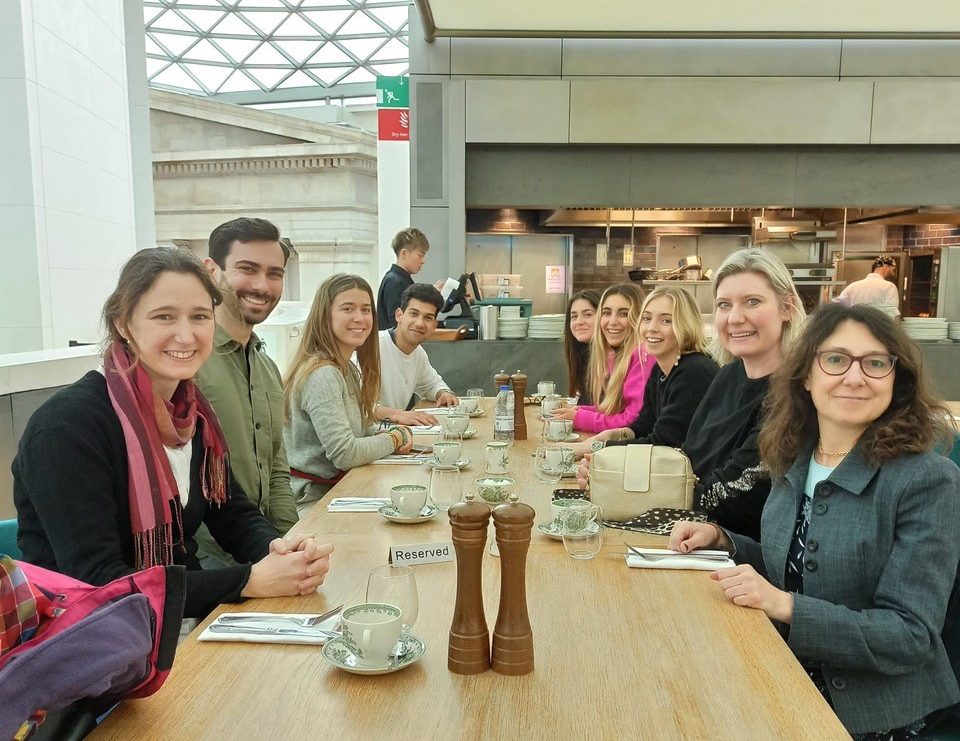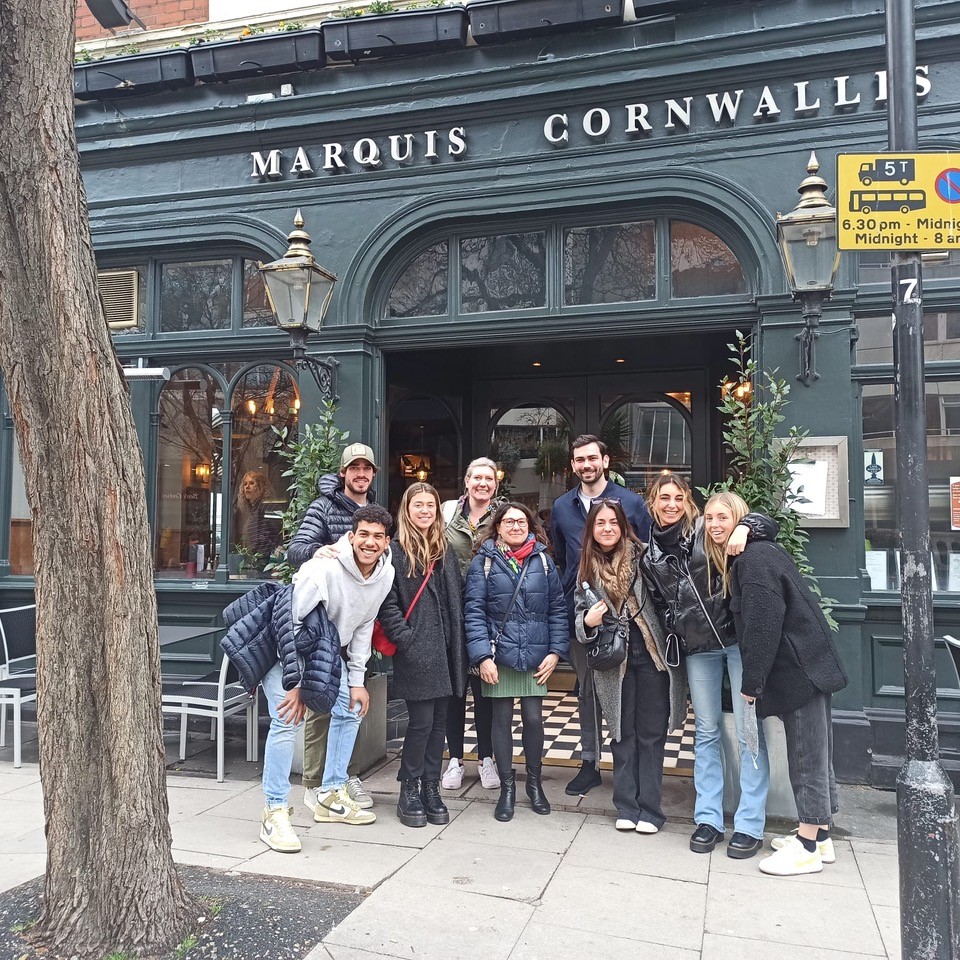This term Birkbeck’s Access and Engagement team held a series of online and in-person events designed to empower prospective students and learners on their journey to university education. In this blog, Isabelle Habib, Access Manager, reflects on the inspiring events.
Birkbeck’s Access and Engagement team have held a number of events this year for prospective students and learners who are interested in finding out more about university study. The first cross-department event was held on campus and it was fantastic to welcome learners to Birkbeck’s home in Bloomsbury; we are already looking forward to hosting further events on campus in the summer term.
All the activities were shared with our partners who were encouraged to invite their members to register to attend. We were so pleased to be joined by individuals from community groups in Camden and Newham London Boroughs, Further Education Colleges, Trade Unions and Forced Migrant Charities. The aim of these events is to introduce attendees to what they can expect from university and from studying at Birkbeck, in order to build individuals’ knowledge and confidence around the application process.
Is university for me?
Our first event of this term was held in February, entitled ‘Is Uni For Me?’, and was a workshop delivered online. We were pleased to be joined by Birkbeck academic Dr Kristoffer Ahlstrom-Vij, from the Department of Philosophy, who shared a video about ‘Political Knowledge and Preference’, with the group of prospective students. Kristoffer led a lively discussion with the group following the video, giving participants the chance to ask questions about the discipline and how courses are taught at Birkbeck.
The event also included an introduction to the benefits of university, and participants had the opportunity to hear from two current students about their own experiences of studying at Birkbeck. The workshop was attended by people at different stages in their journey to university and many of the participants went on to join us at further workshops hosted this term.
Money workshop
In March, attendees were invited to attend a ‘Money and Student Finance’ event, which was led by Daniel Becker, one of Birkbeck’s Student Advice advisors. Daniel spoke to the group about the process of applying for student finance and we discussed other funding opportunities, such as grants and scholarships. Attendees went away with a better understanding of how the student loan system works and what they need to bear in mind when they apply. Sharing knowledge around financing studies with prospective learners is a key area Birkbeck is improving on.

Team Birkbeck Ambassadors Aditya and Showbi talking to prospective students at the campus visit in March
Campus visit
The final event in the series, and the most exciting for our team this year, was a ‘Campus Visit and Application Workshop’. This event was held in March on a beautiful sunny day, that really showed off Bloomsbury at its best! The first official cross-department event delivered in person since the start of the pandemic, it felt fantastic to be able to offer advice on campus again and show off our facilities to prospective students. As part of the day, we hosted an application workshop in one of the Birkbeck IT suites, and it was brilliant to speak with individuals about their educational aspirations.
In addition to our Get Started activities this term, our Access Officers have been hosting specialized events for partners. We ran our second Taster Series of the academic year with the Department of Law, and launched the activities in the lead up to applications opening for the Compass Project Scholarship, that provides a stepping stone into higher education for people from a forced migrant background. We are now really looking forward to the Summer term and to meeting even more prospective learners at activities on campus.
Further information





 In October 2022, we look forward to welcoming our second – and largest-ever – cohort of UIC partnership students. With Birkbeck’s ever-expanding international student community, we look forward to developing our special partnerships.
In October 2022, we look forward to welcoming our second – and largest-ever – cohort of UIC partnership students. With Birkbeck’s ever-expanding international student community, we look forward to developing our special partnerships.